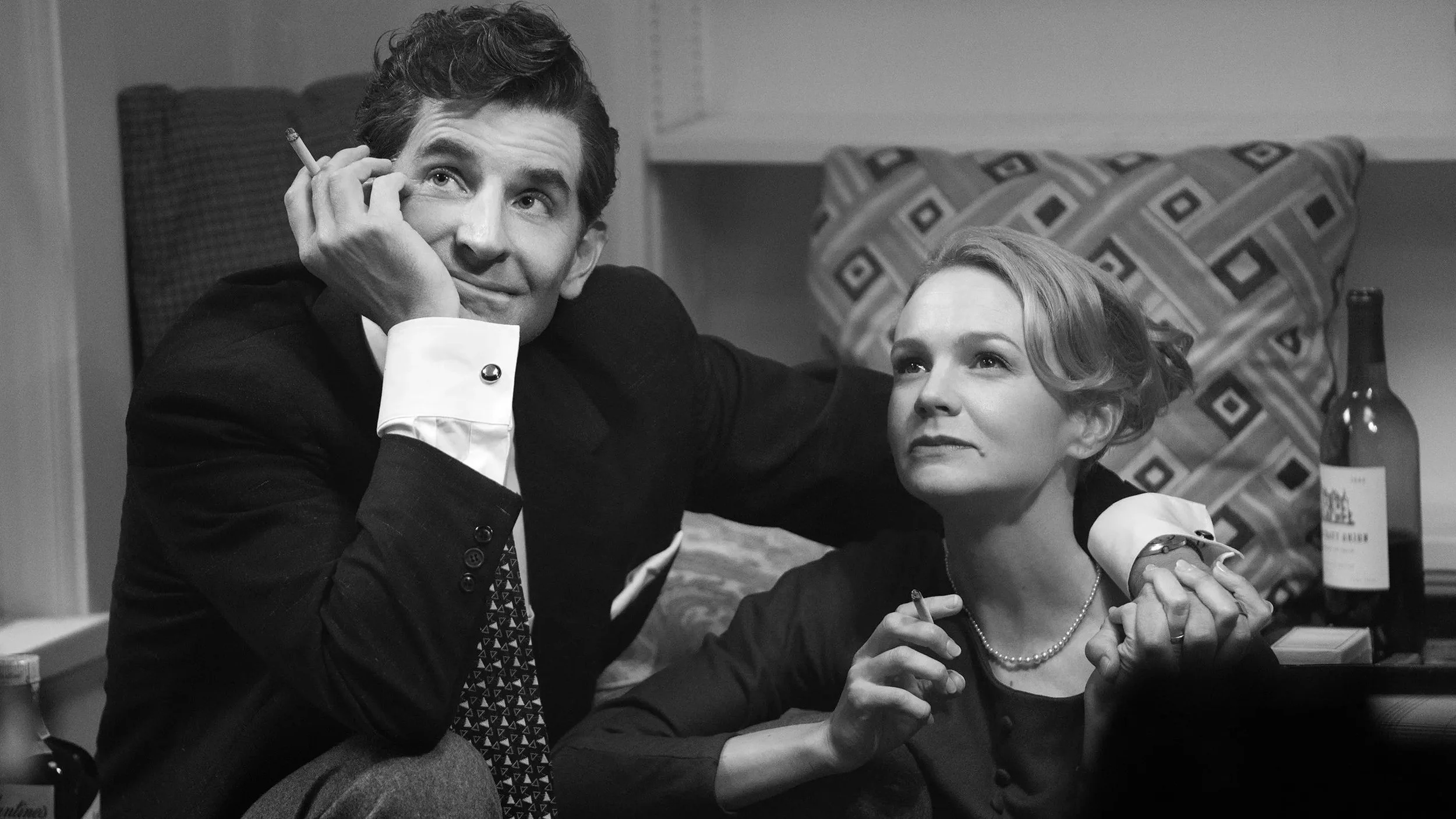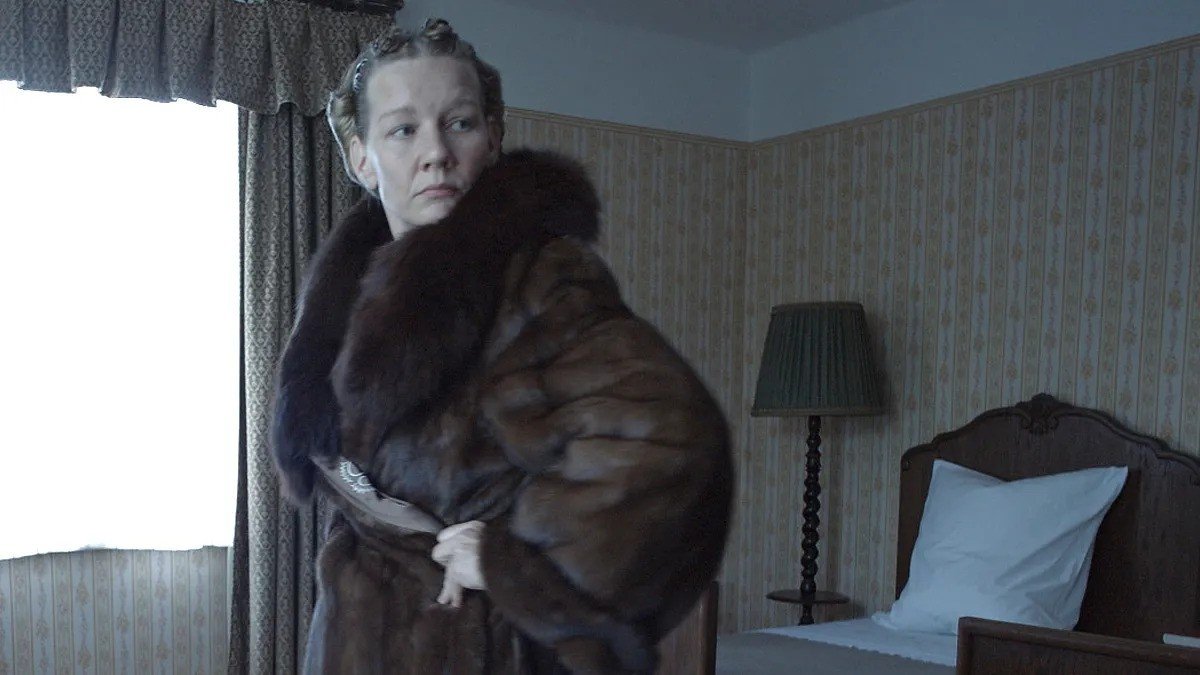Why Every Best Picture Nominee Might (or Might Not) Win
As usual, there’s a clear front-runner at this year’s Oscars—but that doesn’t mean any of the Best Picture nominees are out of the race. Here, Sienna and Levi break down first what’s working in each film’s favor, and second what might be less appealing to Academy voters.
AMERICAN FICTION.
AMERICAN FICTION.
Levi: There’s a lot going for Cord Jefferson’s debut feature. Jeffery Wright, a household name who’s been long overdue for a leading role, brings an excellent and complex performance to Jefferson’s script. The original novel that the film adapts is approaching the quarter-century anniversary of when it was released, but it’s still lauded as salient and piercing satire — a category of literature Academy voters have historically been ardent about (see: Don’t Look Up, Jojo Rabbit).
Sienna: That said, it has faced some criticism—both for its pacing and for its lack of any identifiable politics. Despite the film not taking any strong political stances, it still might be “too much” for the Academy—many members of which might not be willing to see how much the film mirrors their own behavior. And of those who may have voted for it anyway, some may be turned away by the soapy (if well-acted) nature of the family drama—something that slows down what is otherwise a snappy, biting film.
ANATOMY OF A FALL.
ANATOMY OF A FALL.
Levi: Not only is Anatomy of a Fall one of the best courtroom dramas we’ve seen in decades, it’s also a monumental achievement in screenwriting that can’t go unrecognized. There is a sequence towards the end of the film, introduced as an audio recording in the courtroom that expands out into an entire scene, that rivals some of the all-time great screenwriters like Nora Ephron and Robert Altman. Sandra Hüller has rightly seen a lot of praise for her performance as well, and her presence in the film is likely to help boost the film’s recognition on an Oscars ballot. Neon’s awards campaign for Anatomy has also given rise to the celebrity status of one of Hüller’s costars, the dog Messi, who is genuinely an impressive performer in his own right. Justine Triet also has a directing nomination, but it seems unlikely she’ll win, so it’s not impossible her film will be awarded the highest honor instead.
Sienna: I would love Anatomy of a Fall to win—it’s spectacular, and would give me a lot more faith in the future of the awards than I have right now. That said, it’s also long. We’ve seen a real drop in attention spans lately, both in the film industry and in the world as a whole, and I worry that its runtime could take away from its odds. There’s also a chance that some may find the inconclusive ending anti-cathartic and unsatisfying. While I hope voters will be able to look past these barriers, past winners (see: Green Book over Roma and The Favourite in 2019) make me a little nervous.
BARBIE.
BARBIE.
Sienna: Barbie has done something very smart, regardless of how much of it was intentional: positioned its wins and losses as symbols of the film industry’s feminism (or lack thereof). Who knows how many voters were swept up in the no-Best-Director-nom-for-Greta-Gerwig outcry (but had no words of congratulations for Justine Triet or anger for Celine Song)? We are in the midst of a pink-sheened, girl-dinner-fueled era of Extremely Online Feminism, where Margot Robbie (a Real Woman, who Smiles and Wears Pink) not receiving a Best Actress nomination is an injustice large enough to eclipse her accomplishments as a producer; where Lily Gladstone and Sandra Hüller’s nominations are seen as slights against the True Feminine simply because their performances were not Happy or Made-Up or White enough. In an atmosphere like that, how could Barbie not have a chance?
Levi: Barbie, despite its explosive box-office success, is one of the more politically complicated films up for best picture. Culturally, we have a long way to go before general audiences can accept feminist ideas being presented as transparently as they are in Barbie, and more academic feminists may find Greta Gerwig and Noah Baumbach’s script to be excessively trite and surface-level for their liking. In trying to appeal to both sides of the aisle it has failed to connect with most everyone on the margins, which may play to its detriment. There’s a frustrating amount of product placement and corporate apologia in the film as well, not to mention the fact that it is, ultimately, in itself a commercial for a toy.
THE HOLDOVERS.
THE HOLDOVERS.
Sienna: Frankly, The Holdovers is the Academy’s safest bet. This is a film with no overt politics—even the Vietnam War, when it’s mentioned, is skirted around. It’s all in English, engages with no feminist ideals, and never for a moment forces the audience to confront its internal biases. To be clear, none of these are points against the film—one of my favorites of the year!—but it seems only fair to mention that The Holdovers is catnip for any older, more conservative Hollywood purists in the voting pool. It also has much-lauded breakout Dominic Sessa, longtime actors’ actor Paul Giamatti, and Da’Vine Joy Randolph—who has already won 38 awards for her performance in this film alone, compared to Giamatti’s six and Sessa’s eight—on its side.
Levi: While The Holdovers fills a tear-jerker-drama-shaped hole that Hollywood has had for a long time, older Academy voters may recognize that the 1970s films that influenced it are far more effective than Alexander Payne’s contemporary pastiche — no matter how much Payne wants it to not be so. An Arri Alexa Mini’s sensor will never resemble 35mm film, and Paul Giammati and Dominic Sessa simply don’t have the star power to match their predecessors.
KILLERS OF THE FLOWER MOON.
KILLERS OF THE FLOWER MOON.
Sienna: There’s not too much I can say for Killers of the Flower Moon. As Levi says below, it hasn’t had the best awards season in the world. But what I can say, with hope in my heart, is this: I adore it, and I truly believe it deserves to win. I disagree with the screenplay being too long—if anything, I think it just flies. Killers, to me, feels exactly as long as it is, but in the best way possible. There are a couple of Academy-friendly points working in its favor: Lily Gladstone, in particular, has excited audiences both inside and out of the industry with her fantastic breakout performance. Additionally, I would like to believe we’ve reached a place as a country where we can watch such a stark depiction of our evils and see it as devastating and resonant, rather than brushing over it to preserve the American myth.
Levi: It’s precisely because Killers of the Flower Moon seems like such a slam dunk at awards shows that it’s been struggling this season. Martin Scorsese, Robert De Niro, and even Leonardo DiCaprio are reaching deity status in the industry, but all already have Oscars under their belt. Scorsese and De Niro have been at it for a long time, and their age shows in their work; Scorsese’s script is incredibly long and heavy on historical exposition (a sure product of adapting a dense book) and De Niro delivers a one-note performance audiences have seen countless times.
MAESTRO.
MAESTRO.
Levi: The criticisms mounted against Maestro aren’t untrue; moments of Bradley Cooper’s performance (and his prosthetics) are often overly caricatured. The commitment to directing that Cooper brings, though, is absolutely awards-worthy. Cooper’s love of the craft of filmmaking is vividly evident, not only in the beautiful cinematography (shot on real film… unlike The Holdovers) but also in the precision of its execution, notably an incredibly moving long take in which Cooper as Leonard Bernstein conducts an orchestra. Bernstein is an incredibly important cultural icon not only in the world of music but also in Hollywood–a major factor for the old-school traditionalists in the Academy.
Sienna: I’m just gonna be brave and say it: Maestro is pretty bad. It’s had an abysmal awards season so far, even bringing home a couple of “Worst Picture” awards from local critics’ circles. True, it looks beautiful—the one thing, aside from Bernstein’s music, the film actually has going for it—but even the very talented Matthew Libatique has been unable to clinch any of the cinematography awards it’s been up for. Overall, it seems like awards voters are kind of over Bradley Cooper’s whole deal. Between its genuinely bizarre dialogue and its ambling structure, I find it hard to believe anyone had a genuine connection with Maestro. And then, of course, the classic: it might simply be too gay for the Oscars! Ideally, we’ll have grown past that in a post-2017 world, but I still have yet to see any evidence that Moonlight’s Best Picture win was due to the Academy overcoming its homophobia rather than it being forced to admit Barry Jenkins can make a hell of a movie.
OPPENHEIMER.
OPPENHEIMER.
Sienna: Oppenheimer was made to be a Best Picture movie. That doesn’t necessarily mean it will win, but it does mean it has a chance. It has Christopher Nolan’s crowd-pleasing, digestible cinematic flair going for it, meaning it doesn’t run the risk of alienating too many Academy voters. Additionally—and maybe this is underestimating the voting pool too much—I’m willing to bet everyone voting has actually seen it all the way through, not something I can say for everything on this list. Finally, it’s, like, pretty good. And if there’s something the Oscars love, it’s a pretty good movie!
Levi: Oppenheimer encounters many of the same pitfalls as Killers of the Flower Moon; it’s far too long and obsessed with its own historical minutiae, which ultimately obscures its ultimate goal of communicating some really resonant emotional and philosophical truths. The second half of the film – in which characters argue about whether or not J. Robert Oppenheimer was communist or not – feels oddly irrelevant when the memorable ending comes to pass. It’s also worth noting that the real Oppenheimer was in fact a member of the communist party for a period of time, one of a number of facts Nolan brazenly changes for the screen. The length and excess of dialogue in the film may be a disadvantage at the Oscars too; it might be hard to get through at home if voters didn’t catch it in IMAX.
PAST LIVES.
PAST LIVES.
Levi: Despite being a debut feature, Past Lives is probably the best debut nominated for best picture since Get Out in 2017. Greta Lee leads an exemplary cast, the soundtrack is sneakily bittersweet, and cinematographer Shabier Kirchner nails the anamorphic, painterly look the film needed. The screenplay appears to be needlessly unsubtle at first, but is still hugely effective on an emotional level when understood on its own theatrical terms – which makes sense when you know that director Celine Song got her start in off-broadway productions. It also helps that it’s one of the shorter, more accessible films in the Best Picture category; it clocks in at just over 100 minutes, is set in the present day, and has a grand total of three characters.
Sienna: I loved Past Lives (it made me cry!) but I do worry that voters may be reluctant to choose a debut feature for best picture, especially since Celine Song didn’t get a Best Director nod. There are also places where I feel Song’s screenwriting style is a little underdeveloped—I don’t think it’s necessarily uninformed by her background in theater, but I can also think of plenty of plenty of stage plays that play out far more subtly than the scene with Nora and her husband lying awake in bed. It’s a solid, moving debut with the clear beginnings of a bold, competent filmmaking career—but Song’s real Best Picture is still a few films down the line, and the Academy may agree with me. The more unfortunate side of it is, of course, the Academy’s racism; if voters are unable to overcome Bong Joon-Ho’s oft-quoted one-inch barrier of subtitles, Past Lives may be in trouble.
POOR THINGS.
POOR THINGS.
Sienna: Poor Things may not be the most obvious choice for Best Picture, but that doesn’t mean it doesn’t have a chance. Its bizarre, polarizing world and story are softened by several familiar, respected faces (Emma Stone, Willem Dafoe, Mark Ruffalo), and Robby Ryan’s cinematography brings the film a pleasing sense of whimsy. There’s also an idea that Poor Things could be an alternative for voters that want a “feminist film” (whatever that means) but feel that Barbie is too silly or commercial (or couldn’t get past Anatomy of a Fall’s runtime).
Levi: Poor Things is a morally complicated movie that doesn’t seem to always understand just how complicated it is. It features the mind of an infant being put into the body of a grown woman (Emma Stone, who also produced), a change of venue that subsequently causes an obsession with sex and sensory exploration. This isn’t to say the subject matter itself makes the film offensive – it’s a fascinating premise that’s worth exploring. But Stone and director Yorgos Lanthimos don’t always seem to have a grasp on the sexist (and maybe even pedophilic) world that their film lives in, and I wouldn’t fault Academy voters for shying away from the controversy that a Best Picture win for Poor Things might entail.
THE ZONE OF INTEREST.
THE ZONE OF INTEREST.
Levi: This is easily the best movie of the year and completely deserving of the Best Picture title – it’s timelessly relevant, truly horrific, and has the ability to completely reshape what we expect from a film about genocide. It’s made with innovative and precisely intentional methods; actors carried out maximally long takes in front of multiple concealed cameras positioned throughout a home as to never break their immersion in the scene. Mica Levi’s score is minimal but dreadfully haunting. It’s a film that feels horrible to watch, as a film about the Holocaust should, and the Academy would be right to recognize it for both its importance and its artistry.
Sienna: I agree with Levi that The Zone of Interest is a stunning accomplishment—but I worry that how disturbing it is may turn voters away. This is neither a glamorous nor a cinematic film; there is no satisfying story, no likable characters. There are moments shot in black-and-white infrared; there is a long, instrumental overture over a black screen; there is a moment in the middle where the film fades into red for multiple minutes. These are all things that make the film perfectly what it is, and all of them are things that could lose Academy members. Much like with the Oscars’ habit of ignoring horror movies, I fear voters will be unable to separate their acute distress during the film from their objective opinion of the filmmaking.










